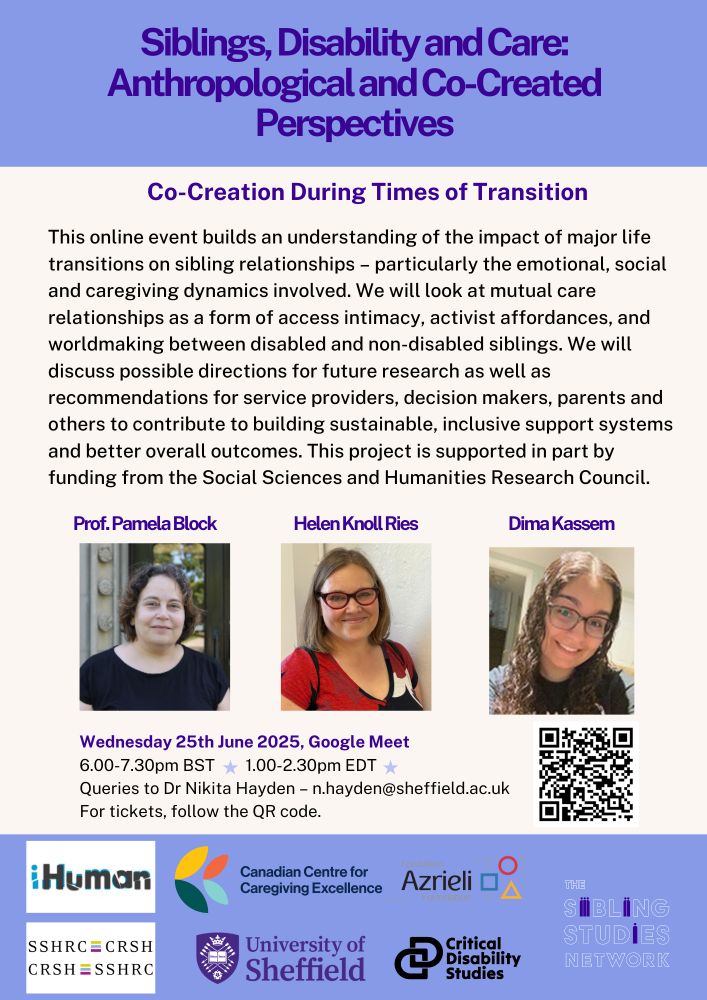Nikita Hayden
@nikitahayden.bsky.social
660 followers
420 following
17 posts
Postdoc researcher | learning disability and autism | neurodivergent | she/they | a little Freudian monkey |
Posts
Media
Videos
Starter Packs
Reposted by Nikita Hayden
Reposted by Nikita Hayden
Reposted by Nikita Hayden
Nikita Hayden
@nikitahayden.bsky.social
· Jan 14
Nikita Hayden
@nikitahayden.bsky.social
· Nov 28
Nikita Hayden
@nikitahayden.bsky.social
· Nov 27
Reposted by Nikita Hayden
Nikita Hayden
@nikitahayden.bsky.social
· Nov 26
Reposted by Nikita Hayden
Saba Salman
@sabasalman.com
· Nov 17
Nikita Hayden
@nikitahayden.bsky.social
· Nov 16

“I Would Not Change [My] Sibling for the World, Maybe the World Can Change for My Sibling”: The Experiences of Adult Siblings of People With Developmental Disabilities
The sibling relationship is complex, unique and important. When one sibling has a developmental disability, siblings can be important sources of care, support, advocacy and friendship for one another...
onlinelibrary.wiley.com
Nikita Hayden
@nikitahayden.bsky.social
· Nov 17
Nikita Hayden
@nikitahayden.bsky.social
· Nov 16
Reposted by Nikita Hayden
Nikita Hayden
@nikitahayden.bsky.social
· Nov 16

“I Would Not Change [My] Sibling for the World, Maybe the World Can Change for My Sibling”: The Experiences of Adult Siblings of People With Developmental Disabilities
The sibling relationship is complex, unique and important. When one sibling has a developmental disability, siblings can be important sources of care, support, advocacy and friendship for one another...
onlinelibrary.wiley.com
Nikita Hayden
@nikitahayden.bsky.social
· Nov 16
Nikita Hayden
@nikitahayden.bsky.social
· Nov 16
Nikita Hayden
@nikitahayden.bsky.social
· Nov 16

“I Would Not Change [My] Sibling for the World, Maybe the World Can Change for My Sibling”: The Experiences of Adult Siblings of People With Developmental Disabilities
The sibling relationship is complex, unique and important. When one sibling has a developmental disability, siblings can be important sources of care, support, advocacy and friendship for one another...
onlinelibrary.wiley.com
Nikita Hayden
@nikitahayden.bsky.social
· Nov 15
Nikita Hayden
@nikitahayden.bsky.social
· Nov 14
Nikita Hayden
@nikitahayden.bsky.social
· Nov 14










